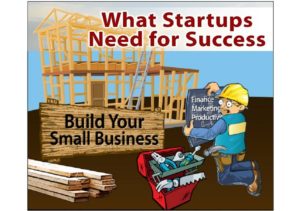Podcast: Play in new window | Download

In this episode of The Struggling Biz, we discuss a theme from a repurposed podcast that dealt with the topics of alternate strategies to recover and/or pivot from current direction of your business to a new area to grow to success.
As you will hear in this previous podcast audio episode, the case studies (with myself, included) include the idea that perhaps a failure in one area of the business can lead to a new direction or a resurgence of opportunity in another area.
Perhaps you can relate this to a book by Eric Reis called The Lean Startup . This book was very popular in the years around 2011 because it gave the passionate newcomers to business the idea that one weekend or $250 in startup costs could provide the landscape for a profitable business of “the next new thing” which would be acquired by Apple, Microsoft, Google, etc. These false hopes had millions of people desire just to become an entrepreneur with really no business passion or business knowledge or expertise — they chased the elusive butterfly of business success as an entrepreneur in any industry or product.
Now, my case study of my own experience deals with an education course in the area of personal productivity, and the course would be administered by a premium podcast (which mandated a cost via subscription). However, the success of this course in 2008 was superseded by the unplanned announcement of the Apple iPhone — and this new fanfare literally stole the market and terminated any marketing or momentum that I had been gathering. And that is the way of life in the high tech market, where one instance or announcement or competitive action can change the entire landscape and your own position for success in your business environment. And the example is included as the main case study in the original 12-minute episode:
Now, for today’s entrepreneur, the necessity of alternate strategies begs of good planning by the would-be entrepreneur. And there would be no shame in driving your firm toward the goals anticipated with your expertise in the industry or product — even though it could end in a failure or no-op. Why? Because we, as entrepreneurs know that failure can be a good education that can lead us in experience toward a really successful future path.
As one executive in the film industry during the 1930s, David O. Selznick, stated: “I’m only 32 years old, and I can afford to fail…”
And, later, as you may know, he was the producer that had the most successful film in history up to that time, Gone with the Wind.
So, now, the Lean Startup book can give you the same idea of alternate strategies in the area of pivoting. However, as we saw in 2013, many startups were pivoting just for the sake of pivoting when their enterprise did not reach millions in revenue in the first year. And so they even pivoted to industries or products of which they had neither expertise nor knowledge. And, of course, this was the formula for great failure. The ideas and examples in the 2011 time frame that you could start a successful business right off the mark with just $250 and one weekend of work simply were discovered to be “fools’ gold” for those prospecting into the area of entrepreneurship.
So, for the entrepreneur, we ask ourselves: what could be a good EXIT STRATEGY for both failure, as well as success? We should know when we achieve success, as well as when it is time to quit and not throw good money after bad.
What would be a successful exit strategy for you? In the above examples, video training could be a good alternative for premium podcast courses — as well as screencasting or blogging or a combination of all of these New Media technologies when they deliver a solution to a problem for the clients and give VALUE to the pains felt by the audience.
We hope that you can plan for a good exit strategy for your entrepreneurship — even if you have been in business for a while but never got around to planning for one. It is never too late to contemplate what an exit strategy or alternate strategies would be good for your business — because even these change over time with the high tech environment going so fast. In fact, we hope that you can develop and document your exit strategies and review them every year (with your annual reviews) to ensure that they are still valid. And thus, we wish you success in your business for the long term.
Thank you for your attention.
Copyright (c) 2021, Matrix Solutions Corporation and michaelandmike.com . All rights reserved.
